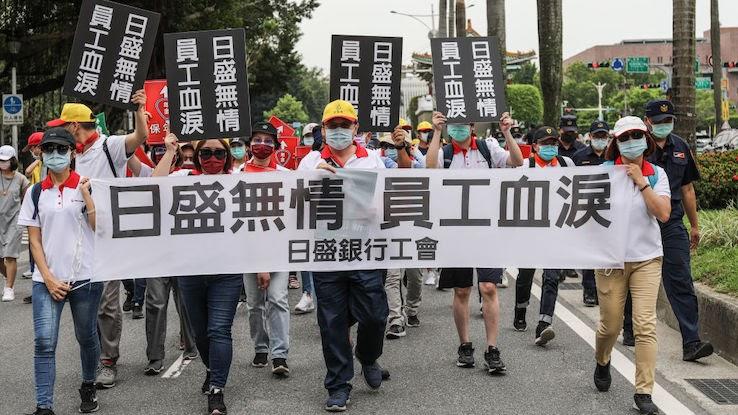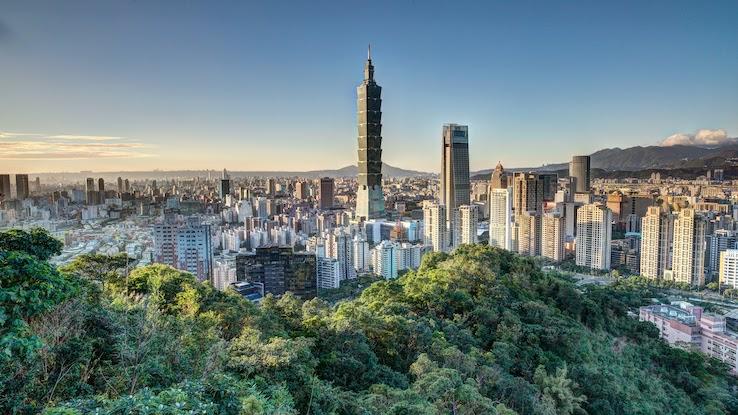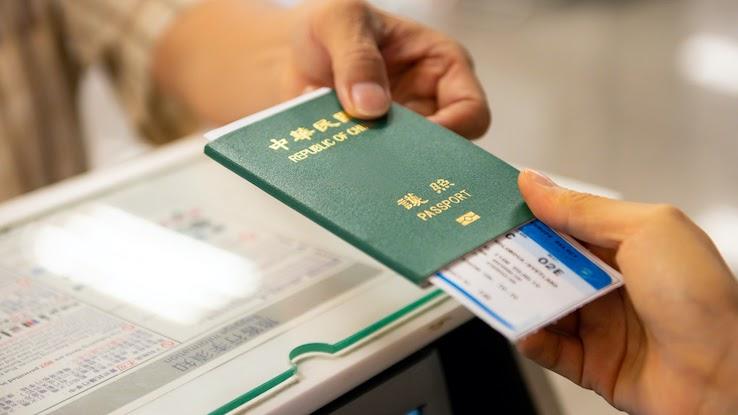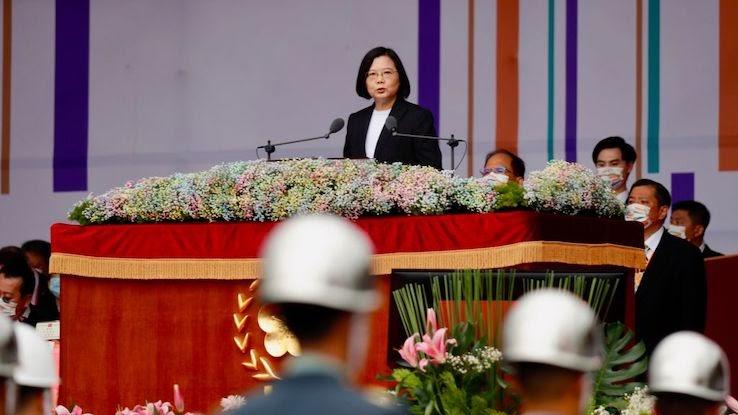Trump Chine Trump China Its Not So Easy

Tensions between Taiwan and China have escalated throughout much of 2020 and 2021, but this isn't the first time their enduring geopolitical controversy has appeared in news headlines. For decades, conflict has stemmed from the fact that the Chinese government believes Taiwan is still a Chinese territory, despite the many qualities of an independent nation that Taiwan possesses.
Many members of Taiwan's population disagree with the Chinese government, believing instead that Taiwan is a separate nation and should be recognized as such, in part because Taiwan has its own constitution, elected leaders and military. Despite this, Taiwan has never officially declared independence from China, nor has China granted Taiwan official recognition as a separate political entity, instead treating Taiwan as "a breakaway province that will, eventually, be part of [China] again."
Chinese government officials in Beijing have recently become concerned that Taiwan will take action toward formally declaring its independence. For this reason, China's government has again begun taking military actions against Taiwan, calling these acts an attempt to maintain China's national sovereignty and security. But what lies at the root of these conflicts, and what could the future hold?
How Did Taiwan Fracture From China Initially?
Taiwan, also called the Republic of China (ROC), is an island separated from southeast China by the Taiwan Strait. The first records about the island's history come from the year 239 AD, when China sent explorers to visit and document the area — an event that Beijing uses to justify China's claim over Taiwan. The island and its indigenous population were subject to Dutch colonial rule from 1624 to 1668, after which the Qing Dynasty of China controlled the island until 1895.

China, now known officially as the People's Republic of China (PRC), ceded control of Taiwan to Japan after losing the First Sino-Japanese War in 1895. China had been ruled by monarchical regimes called dynasties for thousands of years, and the fall of the Qing Dynasty, China's last, in 1911 meant there was an opportunity to usher in a new form of political leadership. In 1912, the ROC formed in mainland China as a sovereign state led by a new political party called the Kuomintang (KMT). Several years later in 1921, the Chinese Communist Party (CCP) officially formed, and the two parties subsequently began engaging in skirmishes as the CCP struggled for power.
The KMT remained the dominant ruling political party in mainland China through World War II, after which Japan was ordered to relinquish its control over Taiwan. China, which was allied with the United States and the United Kingdom during WWII and still known then as the ROC, "began exercising jurisdiction" over Taiwan. The KMT and CCP continued fighting for power, and these efforts came to a head following Japan's surrender.
For several years China experienced a civil war as KMT and CCP armies battled to lead the country. The CCP ultimately prevailed, and in 1949 KMT leaders fled to Taiwan — effectively taking the ROC with them. Mainland China became known as the PRC in the wake of the communist party's 1949 victory, and Taiwan continued operating as the ROC due to the differences in political party leadership. The separation between governments still exists today, although Taiwan has slowly moved toward full-fledged democratic rule — having hosted its first free presidential elections in 1996.
Political leaders around the world, including those in both China and Taiwan, have different views about Taiwan's status, and these differences extend across the geopolitical spectrum — Taiwan doesn't seem to have one official status that is internationally and universally recognized. Although the ROC was one of the original countries to sign the United Nations Declaration in 1942, the United Nations (UN) itself doesn't recognize Taiwan as a distinct political entity or sovereign state. Seventeen countries total recognize Taiwan's democratic government and independence from China, and the U.S. is not one of them. Because the UN doesn't recognize Taiwanese independence, Taiwan cannot be a UN member.

Taiwan has long had a somewhat fraught relationship to the UN. From 1949 to 1971, China's UN seat belonged to the ROC, which was located in Taiwan. Then, in 1971, that seat was transferred back to mainland China. Because of the "one China" policy — a diplomatic position that acknowledges the mainland Chinese government is the sole Chinese government — Taiwan has not had UN representation since 1971. It did have U.S. support for UN representation until 1979, when the U.S. formally broke relations with Taiwan in favor of moving closer to China diplomatically. This was a strategic move against the Soviet Union, an adversary of both China and the U.S. at the time.
Taiwan remains in a sort of geopolitical limbo with a population of nearly 24 million and its own democratically elected government. Taiwanese citizens use Taiwanese passports to travel. Taiwan's economy is the 22nd largest in the world and is a key trading partner with the U.S. China has strong economic ties to Taiwan, both formal and informal, as do many countries in the world. So where does this leave Taiwan? Is it an independent nation-state, or an independently governed territory of China?
Technically speaking, it seems the latter is true. Taiwan's current president Tsai Ing-wen was first elected in 2016 and re-elected in 2020. She belongs to the Democratic Progressive Party (DPP) and supports Taiwanese independence. In a 2019 speech, she declared the "one country, two systems" approach as unacceptable, and this again caused tension between China and Taiwan. This political formula, which would allow Taiwan to "preserve its political and economic systems" while re-unifying with mainland China, would be similar to the arrangement between China and Hong Kong in which Hong Kong maintains a significant degree of political and economic autonomy.
Tsai already considers Taiwan to be independent and has made it clear in repeated statements that a formal declaration is not necessary. From an international geopolitical perspective, because Taiwan has never made a formal declaration of independence it's somewhat difficult to acknowledge Taiwan as an independent nation-state.
What's the Current Status of China-Taiwan Tensions?
Tensions between China and Taiwan have been on the rise throughout 2020 and 2021 for several reasons. Tsai Ing-wen was re-elected in 2020 and has been increasingly forthright about her stance on Taiwanese independence, and China has responded with warnings that any attempt on Taiwan's behalf to pursue that independence "means war." Furthermore, improving U.S. relations with Taiwan have not been sitting well with Chinese officials.

When Donald Trump won the 2016 election, Tsai and Trump had a phone call, a move that has not happened since the U.S. officially ended formal relations with Taiwan in 1979. Formal relations have still not been restored, but the U.S. has agreed to supply Taiwan with defensive weapons and has expressed a willingness to side with Taiwan if China were to attack.
To further show support, the U.S. sent a high-level state department official to Taiwan in September 2020, another move that has not happened in decades. That meeting was heavily criticized by the Beijing government, which supplied a warning regarding potential damage to U.S.-China relations if the U.S. was to show support for Taiwan's independence. China conducted a live-fire military exercise in the Strait of Taiwan during the controversial visit.
President Joe Biden and his administration have called current U.S. relations with Taiwan "rock solid." Immediately following Biden's inauguration in January 2021, Taiwan reported Chinese warplanes appearing overhead for two days. Then, on April 12, 2021, Taiwan reported a concerning "incursion" of Chinese military jets conducting drills in Taiwan's defensive zone. Because of the territorial discrepancy of Taiwan, China technically has a right to fly there.
A minority of the Taiwanese population supports pursuing either formal independence or reunification with mainland China, according to opinion polls. Most residents of Taiwan seem to prefer the middle-ground status quo both sides have lived with for over half a century but would support a formal move toward independence if they were certain it wouldn't trigger military retaliation or attacks from China.
Many Taiwan citizens don't appear to be concerned with the rising "tensions," citing the country's co-dependence with China as their reasoning. Considering the heavy flow of trade between the two and China's increasing reliance on Taiwan for technology, it could be a difficult move for China to take offensive action against Taiwan. However, Chinese leadership has made it clear that an attempt from Taiwan to formally declare independence could easily end in military intervention or even all-out war.
Many countries around the world rely on China for trade, so an escalating conflict between China and Taiwan could have serious repercussions on the international economy as well. Despite this, "China-Taiwan economic interdependence is likely to continue because of their geographical and cultural proximity and the complementarity of the two economies," and it remains to be seen whether China's actions are mere posturing or indicative of potentially more serious intentions.
flanniganwhissind.blogspot.com
Source: https://www.reference.com/geography/china-taiwan-tensions-global-relations?utm_content=params%3Ao%3D740005%26ad%3DdirN%26qo%3DserpIndex&ueid=86631151-8a3a-41c7-8130-102f452c6763
0 Response to "Trump Chine Trump China Its Not So Easy"
Publicar un comentario